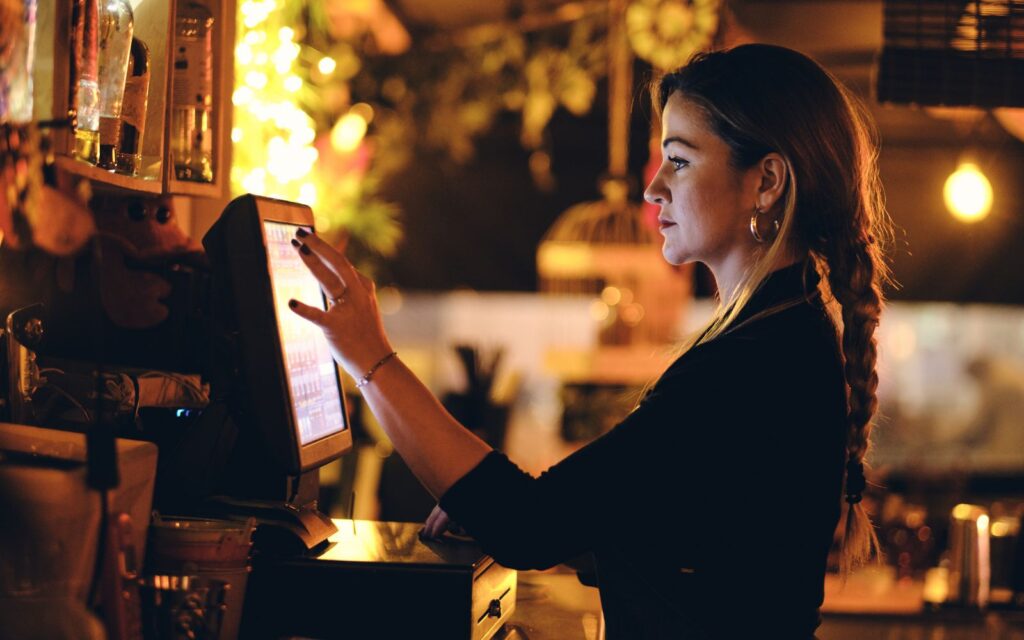Canadian Restaurant Tax Services Guide

Choosing the right restaurant tax services for your business makes all the difference. Keep reading to discover what services you should consider.
Table of Contents
Running a restaurant in Canada is more than just delivering delicious food—it’s a complex operation with countless moving parts. From handling fluctuating income and seasonal staff to managing perishable inventory, Canadian restaurant owners juggle more financial variables than most industries.
But one critical area that often gets overlooked is taxes.
Proper tax planning, filing, and compliance are vital to a restaurant’s long-term success. Whether it’s managing GST/HST, tracking cost of goods sold, or staying audit-ready, specialized tax services can make all the difference in profitability and peace of mind.
In this guide, we’ll walk you through everything you need to know about restaurant taxes and how tailored restaurant tax services can help keep your business compliant and thriving.
What Are Restaurant Tax Services?
Restaurant tax services are specialized accounting and tax solutions tailored specifically for restaurants. They go beyond basic tax filing by addressing the unique financial, compliance, and operational challenges that restaurants face in Canada.
Here’s a breakdown of what restaurant tax services typically include:
Sales Tax and Tip Reporting
Canadian restaurants must collect and remit GST/HST (or PST, depending on province) on taxable food and beverage sales. Navigating these taxes is especially tricky for restaurants that sell both taxable and zero-rated items.
Tips—though voluntary—also come with tax responsibilities. Employers must track declared and automatic gratuities, and ensure proper withholding of CPP, EI, and income tax where applicable.
Inventory and Cost of Goods Sold (COGS)
Accurate inventory tracking is critical for calculating COGS, which directly affects your taxable income.
FIFO (First In, First Out) is commonly used in the restaurant industry to prevent spoilage.
LIFO is rarely accepted in Canada but may still appear in some legacy systems.
Spoilage, waste, and theft must also be factored in when determining true food costs and potential deductions.
Payroll Taxes and Employee Classifications
With part-time servers, full-time chefs, and delivery contractors, payroll taxes can quickly become a headache.
Understanding the difference between an employee and an independent contractor is critical for avoiding CRA penalties.
Employers must remit payroll deductions including income tax, CPP, and EI.
Don’t forget about benefit-related deductions, such as health plans or staff meals.
Restaurant Business Expense Deductions
Restaurants are entitled to deduct a wide range of business expenses, such as:
Rent, utilities, uniforms, marketing, and cleaning services.
Meals and entertainment expenses have specific deduction limits.
Depreciation of kitchen equipment, POS systems, and furniture must be tracked and claimed annually using the CRA’s capital cost allowance (CCA) system.
Outsource your tax filing to a team of Canadian professionals
Get the help you need with tax filing for your business with flat-rate fees for an all-in-one solution that includes bookkeeping too.
Key Tax Services Restaurants Should Consider
Tax Planning and Strategy
Working with a tax professional who understands the restaurant industry can:
Optimize your deductions.
Structure your finances for tax efficiency.
Avoid unnecessary penalties or missed opportunities.
Regular check-ins can identify areas where you’re overpaying or underclaiming.
Bookkeeping and Financial Reporting
Having accurate restaurant bookkeeping isn’t just for tax season—they help you make better business decisions all year.
Cloud accounting software like Xero can streamline your bookkeeping.
Regular reconciliation of your POS system with bank records ensures clean financial data.
Financial reports like profit/loss and cash flow statements are essential for tax preparation and CRA audits.
Tax Preparation and Filing
Timely and accurate business tax filing is non-negotiable. Late or incorrect filings can lead to interest charges, penalties, or even audits.
Use a tax preparer who knows restaurant-specific tax codes.
Ensure all GST/HST returns, T2 corporate returns, and T4 slips are filed on time.
Personal tax filing (T1) is also important if your restaurant operates under a sole proprietorship or partnership.
Audit Support and Representation
If the CRA comes knocking, it’s important to be prepared.
Tax professionals can help you respond to audit inquiries, organize documentation, and represent you during the process.
A well-prepared response can make the difference between a resolved case or an expensive reassessment.
Choosing the Right Restaurant Tax Service Provider
Experience and Specialization
Restaurants face unique challenges—your tax service provider should understand them.
Look for firms that specialize in restaurant tax services or serve multiple hospitality clients like Sansar Solutions.
Technology and Tools
Modern restaurants need modern solutions.
Choose providers who use cloud-based accounting software, secure document portals, and POS integrations.
Automation reduces errors and makes year-end tax preparation easier.
Cost and Value
Always ask about fee structure:
Flat-rate pricing is ideal for budgeting.
Evaluate the ROI of tax services by calculating your potential savings from deductions, interest/penalty avoidance, and reclaimed time.
Do you need help with choosing restaurant tax services?
At Sansar Solutions, we specialize in affordable, industry-specific tax and bookkeeping support for Canadian restaurants. Whether you’re running a fast-food spot, café, or full-service restaurant, we understand the unique challenges you face with GST/HST, payroll, tips, and inventory.
Let us take the stress out of tax season—and every season—with tailored packages designed to keep your books clean and your business CRA-compliant.
Common questions about restaurant tax services
Restaurant tax services are specialized accounting and tax solutions designed for restaurants. They include GST/HST filing, tip and payroll reporting, inventory and COGS tracking, tax deductions, corporate tax filing, and CRA compliance.
Restaurants deal with unique challenges like cash tips, high staff turnover, fluctuating sales, and food spoilage. Specialized services ensure your taxes are filed accurately and your business remains CRA-compliant—while also maximizing deductions.
Yes. In Canada, all tips and gratuities (declared or controlled) must be reported as income and are subject to CPP, EI, and income tax. Proper reporting helps you avoid CRA penalties and ensures accurate payroll processing.
Yes, we offer complete bookkeeping services tailored to restaurants. Our packages include monthly or catch-up bookkeeping, financial reporting, and preparation for tax season—so you’re always organized.
At Sansar Solutions, we offer flat-rate, affordable packages starting at 1–2% of your gross revenue, with a minimum fee of $2,000/year. No hourly billing, no hidden fees—just transparent pricing designed for Canadian restaurant owners.
Share
Subscribe For Business Tax Tips & Insights
Get the update on business news, tax deadlines, and new insights to stay on top of your taxes.
Read more articles by Sansar Solutions

Business Tax Consultant: When To Hire
Not sure if you need a business tax consultant? This quick guide breaks down when and why to bring one on board—before it costs you.

Corporation Bookkeeping Guide Canada
If you run a corporation in Canada, understanding your bookkeeping duties isn’t optional—it’s essential for staying compliant and maximizing growth.

Best Online Bookkeeping Services for Small Business
Discover the best online bookkeeping services to keep your finances organized, accurate, and tax-ready—without the hassle.

Failure to File Corporate Tax Return: What Happens Next?
Dealing with failure to file a corporate tax return is something that should be resolved before things get worse. Missing tax deadlines isn’t just about penalties—it threatens your business’s very survival.

Impact of Filing Corporate Taxes Late with CRA
Don’t panic about filing corporate taxes late! This comprehensive guide walks you through what happens next, how to minimize penalties, and practical steps to resolve your situation with the CRA.

Xero Online Bookkeeping: Is It Worth It?
Is Xero online bookkeeping worth it? Discover the pros, features, and benefits to see if Xero is the right choice for your business.

